|
Modern intuition is garbage. Mine is. Yours is. When we are inclined to gamble is likely the time to cut our losses and stop. When we are inclined to quit is probably the very moment that we must push harder; and that makes the difference between success and failure.
1998/99, I chose not to fill out the FAFSA because I sensed that I already had far too many advantages over minorities. I gave up financial aid for which I did qualify, based on a variety of sensibilities. I went to a low-cost school, where I still ended up ultimately obtaining full academic scholarship, which I did not decline. It placed me in a position to take saved money and invest or spend it like a fool. I invested, obscenely conservatively. Though I had intently and intensely studied market trends, and saw the nadir point of Apple as a growth opportunity, my intuition told me to be careful, not “risky.” We went with mutual funds. The intuition was telling me to hold back, and so I did. Refer to the stock chart. That decision cost me between 500k and 10 million dollars. Just like the choice to decline filling out the FAFSA or decline investing in a promising but struggling company, I’ve many times thrown away opportunity. Early on in my career I could’ve gone to much larger clubs with wealthier demographics. I could’ve relocated to other parts of the country or world and lived an incredibly easier existence. I overtly declined an offer to become Regional Director (and potentially RVP) in 2006/07. Think about that. That’s 12 or more years ago. What would my professional track have been if I accepted the offer? Some people have an entitlement problem, believing they’re owed all sorts of unearned and unmerited credit. I have an anti-entitlement problem, believing I’m not even due some things for which I worked. I took a sort of pride in working harder than my peers, and helping underserved communities with many fewer people who could “afford” coaching and memberships. I grew professionally and personally. So I don’t regret it. But I do have to say it was/is difficult to watch other people with far less experience and expertise grab every advantage they could/can, surging ahead in their financial stability, while I stuck to my guns on making meaning, not making money. Additionally, I saw others adopt the use of sketchy supplements and business practices to soar meteorically in the fitness industry. I clung to my sensibilities, oftentimes to a measurable detriment. While others sold out on social media at the beginning, I held back even having any presence on it until 2015. It’s incalculable how much money I left on the table. Now, I see that those sensibilities may have adversely affected my family. My effort to give up advantage in some ways gave up stability for my family. And again, I don’t regret the choices. But I’ve tried to learn how to not skip so many opportunities so chronically. I marvel at other people’s insistence on seizing advantages. It’s not built into me. I have beliefs about equity and fairness which have definitely hindered me in many respects. We all have hangups with respect to success, depending on the vocation. I try to learn. And in fitness, I think I have. That said, I see that many other people also shun opportunity, but not in regard to career or money choices, but with regard to their health and fitness. Every day everyone has the opportunity to improve. Most of the time, we don’t just pass on that opportunity, we aggressively throw it away. And, perhaps, thinking about the “selfishness” of personal growth or development or workouts or nutrition isn’t lofty enough to compel you. Perhaps, instead, you should ponder how your active effort to worsen your own health and fitness is going to become a cost to your family and fellow citizen. It’s going to mean you cost your neighbor and your fellow taxpayer more than if you would’ve taken the opportunities to improve your health and fitness. I love individualism and libertarianism as much as the next person; but your rapidly worsening condition doesn’t just affect your life. It does impact others. Whether we are talking the health care costs or your capacity to crouch down and play with grandkids, skipping the opportunities to become healthier impacts many other people. Now, in the efforts to seize opportunity, there will be trials. You are going to interface with days where your intuition tells you to quit. In those moments, that is precisely the time to double down. Everyone wants to quit when it gets tough. Everyone. But that moment is the differentiator. Somewhere between week 6 and 12 of fitness efforts, there is a psychological law which presses on people to “stop investing in yourself.” Why are college semesters no longer than 15 weeks? We just know that the human psyche is done, cooked, finito, after 12 weeks. In my experience, I can actually predict to-the-day (and sometimes to the hour) when someone I know or coach is going to try to actively give up, based on word choice and attitude at the outset. The more naive they are about self-awareness, the more likely they are to quit altogether by day 54. They actually quit before they began, but believe they slogged through 8 weeks. Only a select few push through the desire to quit. Face your hangups. Face your sensibilities. Face your baser self. When you want to risk it, don’t. When you want to hold back, risk it. When you’re inclined to push on, pause. When you’re ready to quit, keep going harder than ever. It will make the difference in schooling, in advantage, in opportunity, in success, and ultimately in self-care.
0 Comments
The production people put into getting ready for exercise is equivalent to the credits on a Hollywood Blockbuster. The audience keeps awaiting an end to the crew names, especially the digital designers, but it just never seems to come. If you or someone you know does anything more than just get to the workout, that’s you or them.
Lights, camera, action? No. Just action. Forget the hair, the makeup, the outfit, the getting-in-shape-before-I-get-in-shape. Just go and lift. Sprint. Something. Anything. Skip the dress rehearsal. Skip the sound check. Skip the water bottle. Skip the cellphone. Skip the earbuds. Skip the towel. Skip the hair extensions, wig, Botox, waxing and tanning sessions. Just go. ACTION. Skip the “cute outfit,” the Amazon delivery, the trip to Lulu or Athleta. Just workout. Don’t rehearse your lines. Don’t study the screenplay. Just act. Be. Do. Live. Forget the preworkout, the intraworkout, the postworkout. Train fasted. Get it done. No need to gargle salt water and sip honey tea, practicing your scales and vocal warmups before you get to it. Just get to it. You don’t need a lifting buddy or group every day. You don’t need a stunt man for every physical effort. You don’t need a set designer. You don’t need a videographer. Just train. You don’t need to market it, update it, share it. Just show up. No one is rolling out the red carpet. Leave the watches and rings and jewelry at home. Your shoes could be mismatched. Your socks ought to be. Stains on the clothes? Good. No one cares if your nose is powdered. No one cares if you hit your spot, skip a line, miss an inflection. But YOU will care if you don’t get it done. So get it done. It’s just a friggin workout, not a broadway musical. My mission is to help further education in health and fitness - fitness literacy, if you will. The reasons for this are expansive. Firstly, most popular influencers or fitness celebrities are quite inexperienced and under or uneducated altogether. Secondly, official bodies of authority in the health sciences get a lot of things wrong. Thirdly, there are a lot of vested interests who have a substantial gain from your indoctrination. Fourthly, we have these various cultural sensibilities which prevent productive health and fitness behaviors. There are more. But these suffice as the top ones.
All would be well. But people don’t really want to learn. So, the primary barrier to success in my mission is trying to help reinvigorate the learning muscle in people. I try to reignite the excitement of education itself: ebullience. Step one is an ego check. More often than not, I find that adults have shut off the desire to hear. There’s this caustic belief: “No one, unless they appear to agree heartily with my worldview, could possibly have anything to offer.” That’s rough-going. Thus, I hear people debate theoretical tax RATES instead of taxes as incentive for outcomes. Ok. You have no interest in learning economics. Cool. People will insist that a 600,000 dollar loan at 4.25% for 30 years is less than an 800,000 dollar loan at 0% for 25. Ok. You are financially illiterate. Cool. People will think they have to do incredibly long and tedious exercise efforts, avoid heavy lifting, eat less, etc. Ok. You are health and fitness illiterate. Cool. It’s ok to not know. Really. Check your ego. It’s cool. We will all still accept you even when you say, “I don’t have the answer.” Moreover, the moment you check your ego, you might actually learn something. I don’t have THE answer. But I have shown definitively that most explanatory models in fitness are garbage. During my own 6 day fast, my metabolic rate went UP: https://www.instagram.com/p/BqpJhnnFB8j/?hl=en Calories-in/calories-out is a true but nonsense predictor. I’ve been leaner while eating 300 grams of dietary fat per day and no cardio than eating less than 30 grams per day while running 60 miles per week. My cholesterol IMPROVED while eating a diet extremely high in saturated fats. I have the tests. I share the studies. I explain the mechanisms. Meanwhile, the average American follows the common guidelines: the calorie hypothesis, the directives to eat whole grains and drink milk, avoid salt and fat, etc. Yet, what are the average American health and fitness outcomes? It doesn’t take a genius or someone pouring over scientific studies to figure out that the popular and common advice in health and fitness is dead wrong. Look around. Not solely at the CDC stats. Just, literally, look with your eyes at the people in your environment. But again, this requires ego check. Can you subdue your pride enough to learn? It doesn’t matter what information is made available if you won’t cross this vital threshold. However, if you do cross it, you might become not just fitness literate, but literate and competent in all kinds of areas of study. I have to laugh. There are well-understood mechanisms in biology, chemistry, and biochemistry. For some reason, we await mouse studies, human studies, epidemiological or statistical evidence for these same well-understood mechanisms in order to begin to entertain accepting them. It’s sort of ludicrous. Heart disease is a good example. Atherosclerotic plaque is not made from saturated fat; but someone somewhere has published a paper trying to statistically link dietary fat to heart disease. There is no known or proposed mechanism in all of biology for the human body to take animal fats and turn them into heart disease. But man o man do we try to link the two, because we wouldn’t want to accept that the nonstop inflammatory cascades from grains and sugars play any role in an inflammatory condition like heart disease.
Likewise, the impact of oxidized polyunsaturated fatty acids is known. But, we wouldn’t want to give up our fried vegetable oils. So, we await mouse studies, human studies, and statistical and epidemiological evidence. Well... here it is: https://www.umass.edu/…/…/study-shows-frying-oil-consumption “I am a great believer in luck. The harder I work, the more of it I seem to have.”
- unknown, dating to at least the 1800s I stand in absolute awe of people’s unwillingness to consider scientific reductionism. Instead of examining causes and effects, mechanisms and causality, people just like to attribute outcomes to superstition: luck, divine providence, heredity, genetics, “randomness.” No. There are actual traceable and defined causes for everything. And there are really acute manners of altering those outcomes. Where it’s oddest is among people who’ve directly observed counterexamples to their own belief system. They view actual and real life debunking of the “luck” hypothesis, and then they continue to hold onto their luck beliefs. It’s really quite disempowering and victim-narrative-promoting. In philosophy and developmental psychology, they call this cognitive dissonance. Let’s say that you believe that transmission of thoughts through the air is magic. Then someone shows you a smart phone. You must amend your belief or disregard that you observed a smart phone. You must make consonant your beliefs and your learning. In fact, I would argue that by and large people acquire more memorized facts and factoids, but generally don’t learn. Learning means that you don’t carry the exact same philosophy today as yesterday. But you can see that people subscribe to the identical political position or cultural belief now which they held a year ago, 5 years ago, 10 years ago. Is that learning? Obviously not. You are memorizing more facts and factoids. You haven’t been learning for a very long time. Recently, a client of mine painted himself into a corner, wondering about what other “breakfast foods” I could think of. I said, “breakfast is a time, not a food.” His mind was blown. When the paradigm doesn’t work, you need to question IT, not ask more questions inside of the faulty paradigm. I see the same with all the superstition beliefs, especially luck. You get confronted with a clear example how people make “luck,” and you can amend your superstition or you can delete the evidence. Even for myself, I sometimes forget the hearty digging I had to do to get where I am. People who’ve known me closely in the past 15-20 years have seen me gain 80lbs of muscle, become leaner at 240lbs than I was at 160lbs, become stronger and more functional after Lyme disease than before it, and without surgery improve orthopedic problems which supposedly require surgery. This was luck? No, friend. I studied incredibly hard and slaved for years to develop the portfolio of skills I have. Every single day I get piles of inquiries about coaching. Some of it is in response to posts like a YouTube video I did where I showcased a condition on my right knee that classically necessitates surgery. Even my family forgets that I had a period of time where I was limping around and couldn’t squat down or get on or off an air mattress. I’m not better because of luck. I’m better because I hazard to ask questions most human brains won’t entertain: 1.) what do I currently believe which may be wrong? 2.) what do I take for granted? 3.) what is a better way? Active humility. This is a searching. Instead of seeking ways to substantiate myself, my ego, my little roles and titles and philosophies, I’m seeking better ones. So I don’t gift myself the incredible luxury of superstition, chalking things up to luck and unfair systems. You think this was luck? Maybe. But I think in a way as if there is no such thing as luck. “Stand up straight and realize who you are, that you tower over your circumstances.” - Maya Angelou
Peace in heart is the key for wellness. Epidemiological studies have failed to nail down exactly which factors most influence longevity and lower risk of all-cause mortality OTHER THAN three things: sense of purpose; sense of community; sense of family. That is, deep sense of stress management reduces perception of hardship. With the reduction of perception of difficulty comes improved health and reduced risk factors. The longest lived people on earth aren’t necessarily the leanest, nor have the lowest incidence of smoking, nor the lowest sodium intake, nor the lowest alcohol consumption, nor the lowest caffeine intake, nor strictly vegetarian diet, nor many of the other things we would like to suppose we can bolt onto our lives to magically live forever. Instead, it is their overall internal peace. This is not my opinion. We know it to be true: https://www.psychologytoday.com/…/live-longer-practicing-fo… And here, although a little overstated: https://www.bluezones.com/2016/11/power-9/ People who are 110-119 years “don’t worry easily”: https://www.huffpost.com/…/supercentenarians-tips-for-aging… The implications are obvious. Mindset reigns supreme. Now, this still begs the question of HOW to achieve peace. It is true that activity and food can reduce depression/anxiety by improving the overall balance between pro-inflammation and anti-inflammation. Exercise in a way that improves strength and mobility. Eat in a way that is respectful of your body and to others. From that, people gain more peace. More peace makes it easier to tackle more life. That, in turn, captures more peace. But how do we capture even more? This is the eternal human problem. Ancient societies already figured out that constant internal conflict and drama didn’t produce on-average better physical prospects. Thus, we have religions and philosophies and scientific materialist reductionism. We think we want to get to the root of everything so that we may control outcomes. But, remember, people who live the longest aren’t control freaks. Rather, they obtain a peace about their worldview. Sometimes that means self-control. Most times it means relinquishing external control. But again, what practices or behaviors can obtain more of that internal peace? It isn’t the resolution of external problems. People who live to 120 years of age still live in the same broken world with the same broken people as the rest of us. They’ve cultivated a skill at seeing the world a certain way. That skill leads them to sense of purpose, sense of community, and sense of family. Now, think long and hard about this. Do you really think all of these long-lived people always get along with one another? Do they always agree? Do they avoid other humans, reducing them to sound bytes and objects? Obviously, no. Instead, they fix their internal workings in order to maintain interactions and maintain purpose. “Turn mountains into molehills” is the mantra. There are different tactics for this. And a supreme one is the acknowledgment of how you benefit from your circumstances as opposed to lamenting everything in your life. I think someone once called this “gratitude” or “thankfulness.” Grateful or granted? The amount of things an ungrateful person takes for granted is outrageous. We like to keep the incredibly luxurious modernity in an abstract thought. But gratefulness sobers you up right quick. Almost 2 billion people lack basic access to sanitation: https://www.cdc.gov/healthywater/global/wash_statistics.html. That’s today. That’s not some artifact of imagination or bygone era. TODAY there are 780 million people who can’t rely on water. You walk to the faucet. I walk to the faucet. As much as anyone hates big government, we all love us some tax-funded municipal water. We love it so much we just straight up take it for granted. It wasn’t all that long ago that clean running water was science-fiction. If we take this technology away, we’re in the dark ages. Imagine burning up 5-10 hours of every day just trying to find potable water. We won’t be constructing roads or buildings or innovating anything. We won’t be sending kids to school. We won’t be pursuing careers. We won’t be redefining words and political stances. We won’t be doing much of anything other than surviving. Then we can really forget about our first-world problems. And that’s just one single but fundamental variable for which we can and ought to be incredibly grateful. If we have no daily gratitude practice, we will remain in our taken-for-granted mindset. You can write them down. You can speak them out. You can include them in dinner-time or bedtime prayers. You can place them within a meditation. You can implement however. But you CAN implement, and consistently at that. Just waving our hands at thankfulness is contrived. It doesn’t carry much weight. Pretentious gratitude isn’t satisfying the need for internal peace. It’s gotta be bigger. It has to be an outpouring of gratitude. It has to be regular. It has to begin to define your internal state, override the perception of challenge, and not “worry easily.” Isaac Newton famously noted, “If I have seen further it is by standing on the shoulders of Giants.” Good Lord. Is there a more grateful and humble sentiment, ever? The creator of calculus and physics goes, “yeah, I guess I’m ok, but only because I benefited from others.” This guy is responsible for essentially every modern piece of technology, laying groundwork for most sciences, and a sweat-equity genius who slaved for his craft. His summary of it all: I could only do what I do because of what others did before me. Meanwhile, Jimmy, your next-door neighbor, has a tattoo reading “self-made.” The father of physics: it wasn’t all me. Biff, from Back to the Future: I’m a self-made millionaire. Sure. You worked hard. I did too. We made a lot of our “luck.” But man o man, look around. Everything you see was created and built by others/all of us. You’re not chopping your way through jungle to find a watering hole that won’t cause dysentery. Yeah, I too have stories about times we had to skip heating the house, skip a meal, and worry about if I’ll have a home. If you have a tougher story, it just means you’re a tougher breed. If you don’t, that’s fine too. The circumstances are almost immaterial. What’s your mindset? What’s your internal peace? Focus on gratitude for how good you once had it, how good you now have it, how good you will have it. With that practice of gratefulness, we may throw off the chains of our real and imagined woes. In so doing, we may appreciate one another more. As we appreciate one another, we may grow to increasingly support one another. As we support one another, we don’t just build families and communities, we build our internal peace. Divisions and strife diminish. Purpose flourishes. Diet and exercise all you like. Obviously, I believe in it. But for deep wellness, first begin with mindset. That mindset begins with the outpouring of gratitude. Sometimes scientific consensus confirmation of the obvious takes way too long:
https://www.lunduniversity.lu.se/…/association-between-coel… You mean, repeated exposure to an impossible-to-digest protein might create sensitivity or even intolerance? No. Say it ain’t so. *meanwhile immunologists the world over groan “[Y]ou all have faced challenges far greater than anything I or my family have ever experienced, challenges that most... could never even imagine... Some of you have been homeless. Some of you have risked the rejection of your families... Many of you have lain awake at night wondering how on Earth you were going to support your parents and your kids... And many of you know what it’s like to live not just month to month or day to day, but meal to meal. But... let me tell you, you should never, ever be embarrassed by those struggles. You should never view your challenges as a disadvantage. Instead, it’s important for you to understand that your experience facing and overcoming adversity is actually one of your biggest advantages.”
- Michelle Obama I like when I hear new excuses, though it’s incredibly seldom. Personal training and years of management experience prepared me well for parenthood. After a while, though, I began to notice that when people are presenting the same basic BS, they think they’re coming up with something new: hormones, genetics, age, weight, sex, gender, race, ethnicity, societal expectations, work obligations, kids, house, money, time, motivation, inspiration, chronic disease, terminal illness, deaths of family and friends, relationships, mental health, general sickness, injuries and tweaks, metabolism, stress, pets, vacations, holidays, seasons, etc. I hear you. And... I heard you, years ago, long before you figured out how to package your equivocations in a good-sounding byte. The problem is this: so what? That’s life. It’s basic. It’s unequal. It’s unfair. It’s inequitable. It’s inhospitable. It’s unforgiving. What are YOU going to DO about it? It’s real basic to hold up your limitations as a pretext for inaction. Now what? No one, and I mean NO ONE worth listening to is saying that those challenges aren’t real. Indeed. I agree. Despite my many advantages and privileges, I can usually ante up quite well if we’re going to compare war wounds. So what? What are YOU going to DO? It’s basic to list off what you “can’t do.” What are YOU going to DO? Because, guess what: no one is going to live your life for you. So you can stop waiting for that to happen. There are people in my network who’ve done so much more with so much less that the here-are-my-challenges-so-I-just-can’t-even excuses are difficult to even hear. Yeah. We get it. Life. It’s this thing other humans have experienced, believe it or not. You do realize there are other humans on earth, right? Now what are YOU going to DO? I train high level professionals in every industry. You think I haven’t heard a smarter person with greater challenges put together a better-sounding set of excuses? I applaud your effort at excuse-making. I do. Really. This isn’t patronizing. I mean it. Now, put 1/10th of that effort into DOING something. There is a massive gap between what people believe creates success and what every study on success prediction finds. Advantage is subjective. Background and tools aren’t predictive. And then we’re still left with the question-begging position of how one defines worldly success or if it’s even desirable. Some researchers propose grit-effort ALONE is predictive of success: https://www.ncbi.nlm.nih.gov/pubmed/30101970. Others, wanting to challenge that hypothesis, merely end up landing on “perseverance” as the predictor instead of “grit.” I think Michelle called it “facing and overcoming adversity.” I am not dismissing anything. I’m not saying I even know what it’s like. I’m not saying it’s easy. I’m not making a moral judgment, an ethical stance, or a value statement, other than how basic you sound when you hold up those challenges as a disadvantage. Michelle Obama already called you out. I don’t need to. What you may think are shadowy disadvantages can become acute advantages. Quit being so basic. Although the highest intakes of flavonoids were associated with the lowest risk of heart disease, the researchers stood back from saying they could fully counter balance unhealthy lifestyle.
Very interesting implications - however, I do find it weird that they didn’t include much discussion of equal or higher flavonoid-containing foods, like coffee, berries, seeds, herbs, spices. https://www.ecu.edu.au/…/apples-tea-and-moderation-the-3-in… Latin:
Re + Sponde Again + Pledge People think they want responsibility. When confronted with consequences, they want anything but responsibility. But that responsibility means you pledged yourself to something. The force of the “re” is essentially 2X. That is, I don’t just pledge; I pledge it AND AGAIN once more. When you dig into the underlying “sponde,” you’ll find it was used in both Greek and Latin with a reverent meaning, performing a sacred rite. Your responsibility is you sacred rite PLUS you doubled the oath. Last week a guy who had worked with my wife sent out a massive email about a long-completed project. It’s been over for a while. It turned out that the hard proof for which he had rendered final authorization had had an error on it. He wanted to know who was responsible for sending this out to print. Lol. Like I said, he was the person at the end of the project sequence who rendered final approval. But this is typical. People conflate responsibility with power on the front end. So they think they want it. Then, when confronted with consequences of their responsibilities, they want it to be someone else’s problem. Lol. It isn’t anyone else’s problem, bud. Your health and fitness is like that. We want to reign supreme over control of our bodies. We have enraged debates about individual rights. But then, when we are confronted with the outcomes of how we’ve mistreated our bodies or our lives, we want it to be someone or something else’s problem. People doubly confuse this by equating fault with responsibility. Those two things aren’t the same. Sometimes, fault and responsibility run on the same track; but they’re in different lanes. Like in the above example, the guy who did final approval is both at fault AND responsible. He’s trying to make it someone else’s problem. He can wish and try to confuse all he wants. But the emails and the Adobe signature with his approval are all on record. With health and fitness, some things aren’t your fault. But it’s still your responsibility to figure out how you’ll move forward in it. Certainly, the way you live your life does affect others. Thus, you can absolutely make it another person’s problem the farther into dysfunction you go. An alcoholic parent can transform his fault and his shirking of responsibility into his child’s problem. Consequently, that child will unfortunately be confronted with a personal responsibility that is grave: run away; live elsewhere; return violence for violence, etc. None was the child’s fault. That his father decided to become a drunkard isn’t the child’s responsibility. But that child will still be confronted with his own personal sacred rite, and whether he will accept or reject dysfunction within himself going forward, and whether he will stop the dysfunction or pass it on to others. Your health and fitness is no different. Some things aren’t your fault. But many are your responsibility. And yet more may be your problem. You want to live you own life? Good. I do too. But now you have to pony up and be willing to pay the price. Personal freedom has inherent costs. They’re tied to personal responsibility. No matter whose fault you think anything is, it’s your responsibility to figure out how to move from here. |
Elev8 Wellness
|
LIVE. AWESOME.We offer the highest quality in personal fitness, nutrition, and mindset coaching, helping you achieve your fitness, health, wellness and performance goals no matter the obstacle. With virtual online training and private, in-studio training we make it easier to reach your wellness goals safely.
No more can't. No more not good enough. If you compete in a sport, let your mind no longer hold you back from being the greatest. If you don't, let your mind no longer hold you back from being the best version of you that you can be. Sign-up for a Tour Covid Screen Waiver Elev8 Waiver Become an Elev8 Instructor Space Rental |
6244 lyndale ave. s., minneapolis, mn 55423
|
© 2021 Elev8 Wellness LLC. All Rights Reserved. site map | contribute | SITE BY Sproute Creative

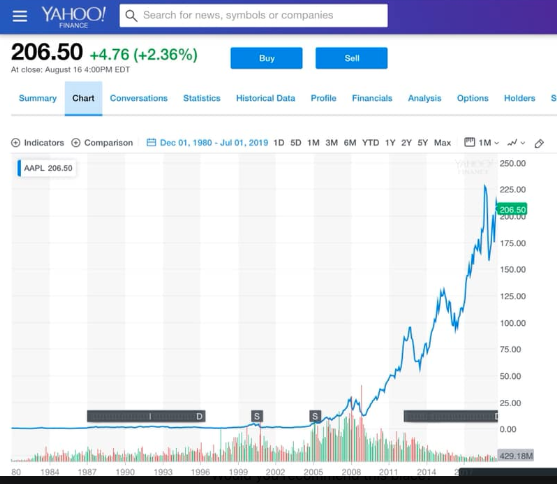

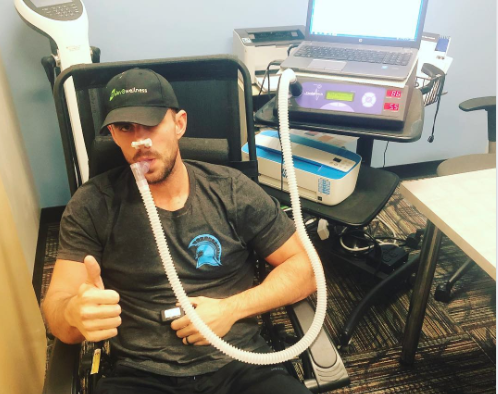

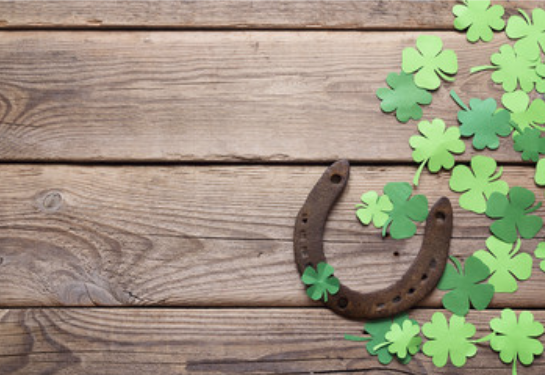
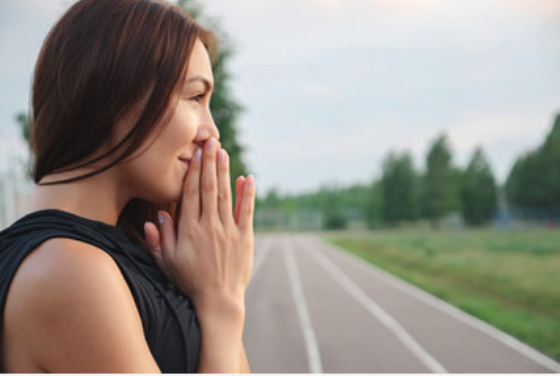

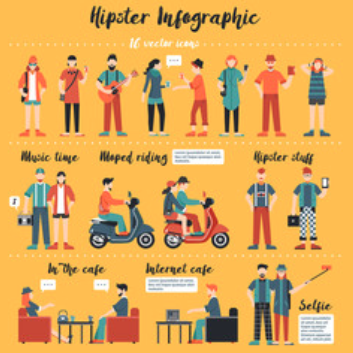
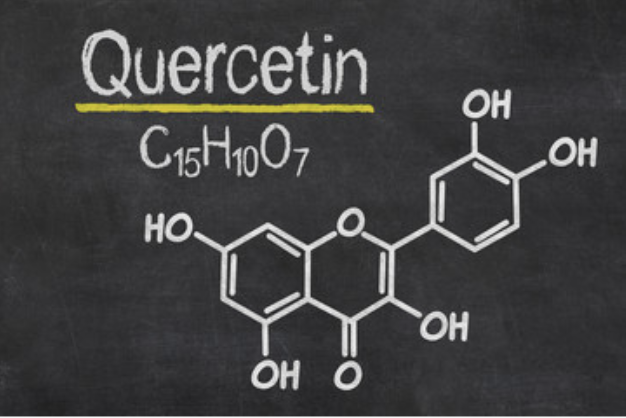

 RSS Feed
RSS Feed
